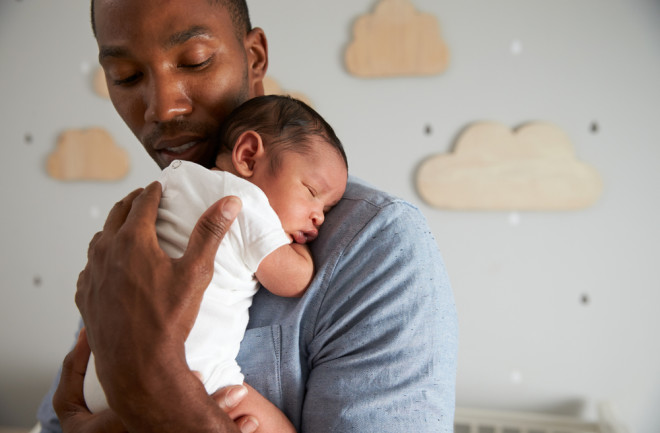Not all men are Hallmark-happy when they become a brand-new dad. Take the case of one father who remembers seeming “totally disconnected” from his newborn twins as he drove home from the hospital in San Diego after their birth. That feeling built into a debilitating mix of anxiety, depression, grief and shame over the next two months.
“It was really scary for me,” says the 42-year-old mortgage lender. “I couldn’t identify what was happening and didn’t have the tools to deal with what I was feeling.”

